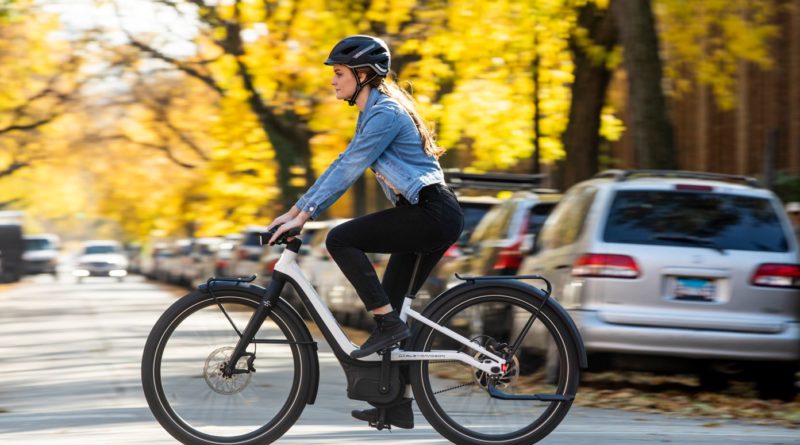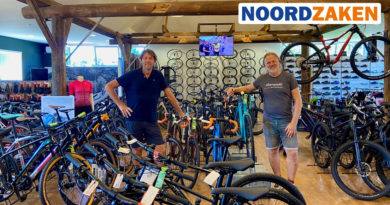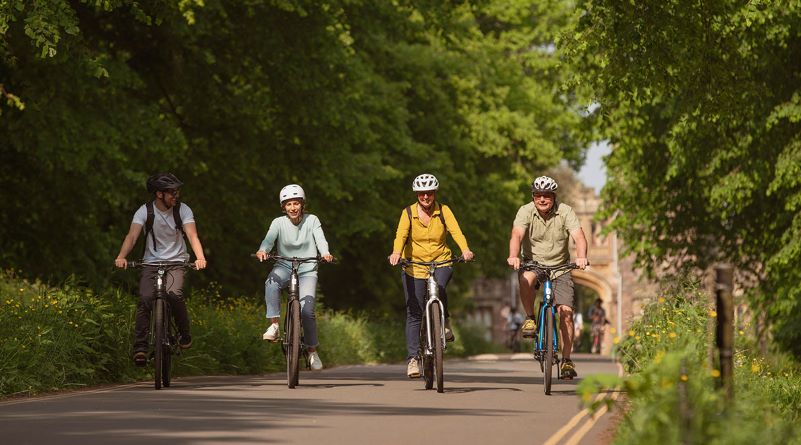Car brands in the electric bike biz: what comes next?
Automotive interest in the bike world is nothing new, in fact some links go all the way back to the very foundation of the cycling market, so should the bike industry shrug off a recent wave of automakers’ interest in electric bikes, in particular?
Just 13% of bike shops responding to the question “What threats has the industry to fear from a retail point of view” in CyclingIndustry.News’ annual research (available to purchase here) said they had concerns about headlines detailing automotive business interest in cycling. While these headlines have almost definitely increased in recent years, it can be reasonably said that the broader mobility discussion was always going to throw two worlds toward the same path. Evolution of technology and smarter use of space in cities are two themes that have set the collision course.
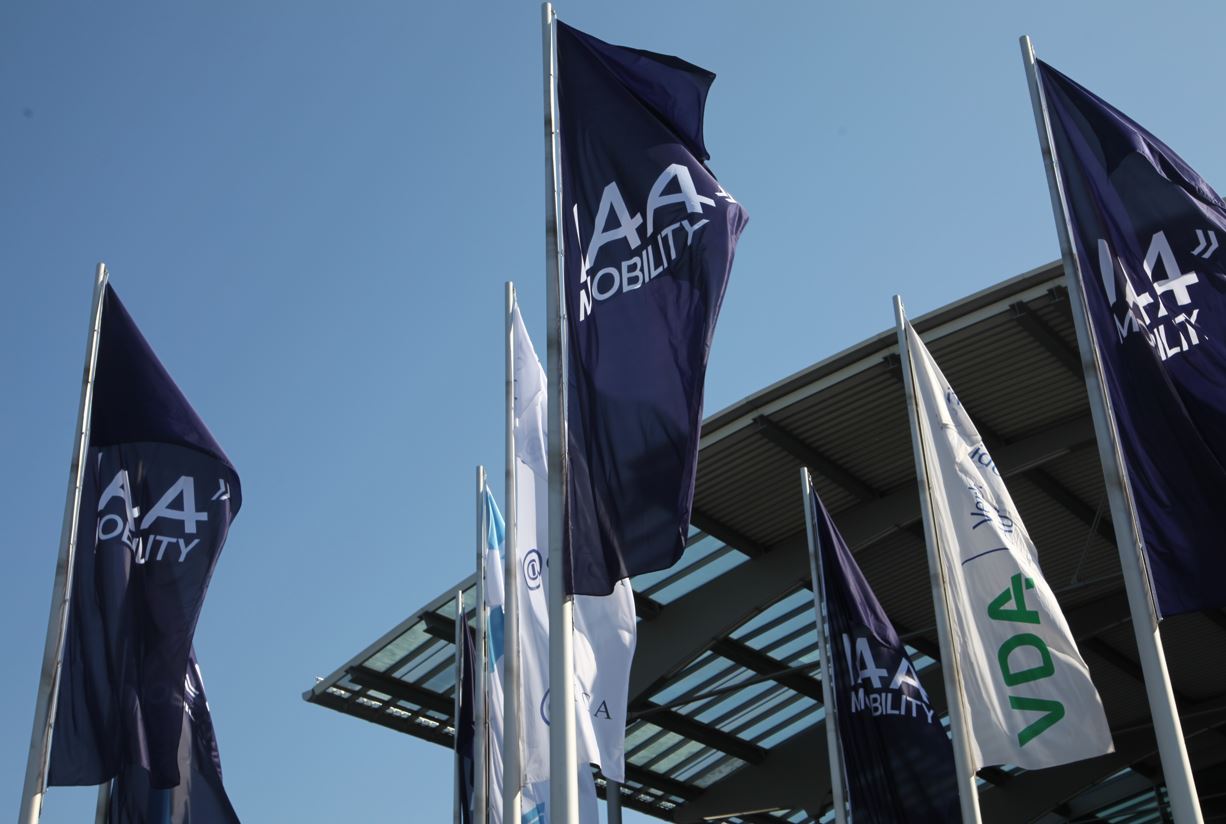 While bike shops are unmoved, the trend is established enough that one of Germany’s leading motor shows saw fit last year to, for the first time ever, deliver a bike industry element. While in 2021 it was felt to be ‘tacked on’ to IAA Mobility, exhibitor feedback will in 2023 see greater integration. The show’s organisers are serious about bringing together modern mobility forms in an ever-tighter bond. Exhibitors on both sides discreetly suggested that perhaps the exhibition may come to be a platform for deals to be done between the isles that brought together bike industry know-how with motor industry resource.
While bike shops are unmoved, the trend is established enough that one of Germany’s leading motor shows saw fit last year to, for the first time ever, deliver a bike industry element. While in 2021 it was felt to be ‘tacked on’ to IAA Mobility, exhibitor feedback will in 2023 see greater integration. The show’s organisers are serious about bringing together modern mobility forms in an ever-tighter bond. Exhibitors on both sides discreetly suggested that perhaps the exhibition may come to be a platform for deals to be done between the isles that brought together bike industry know-how with motor industry resource.
Back in 2016, electric bike industry consultant Ed Benjamin forewarned the industry, having accompanied car industry execs on a tour of bicycle factories, that if the auto trade wished to get serious, they could turn the tap on in an instant. Shortly afterwards electric bikes really took off in Europe and beyond.
So, what’s changed? CI.N returned to Benjamin for insight.
“Car makers have always, in my experience, had an interest in bicycles. But they have not been well equipped to compete in the very cost conscious, very quick moving, bicycle industry. Electric bicycles have changed that. Car companies have capital, a willingness to invest in engineering and technology, and expectations that they will deliver a level of quality that is not easy for the bike biz to match. The first manifestation of this was the success of Bosch, a tier one auto parts supplier,” he said.
Bosch’s involvement did indeed transform the bike business and at a time when the reinvention of the bicycle and subsequent consumer interest was direly needed following a post road cycling boom lull. That did not necessarily immediately translate into automotive firms taking a greater interest, albeit it’s difficult to say what’s going on behind the scenes, but subsequent policy shifts challenging car dominance in cities certainly have put the pressure on mobility giants. Then there’s the small matter of the climate crisis, to which transport emissions lend 27% of the UK’s total emissions (2019 data)
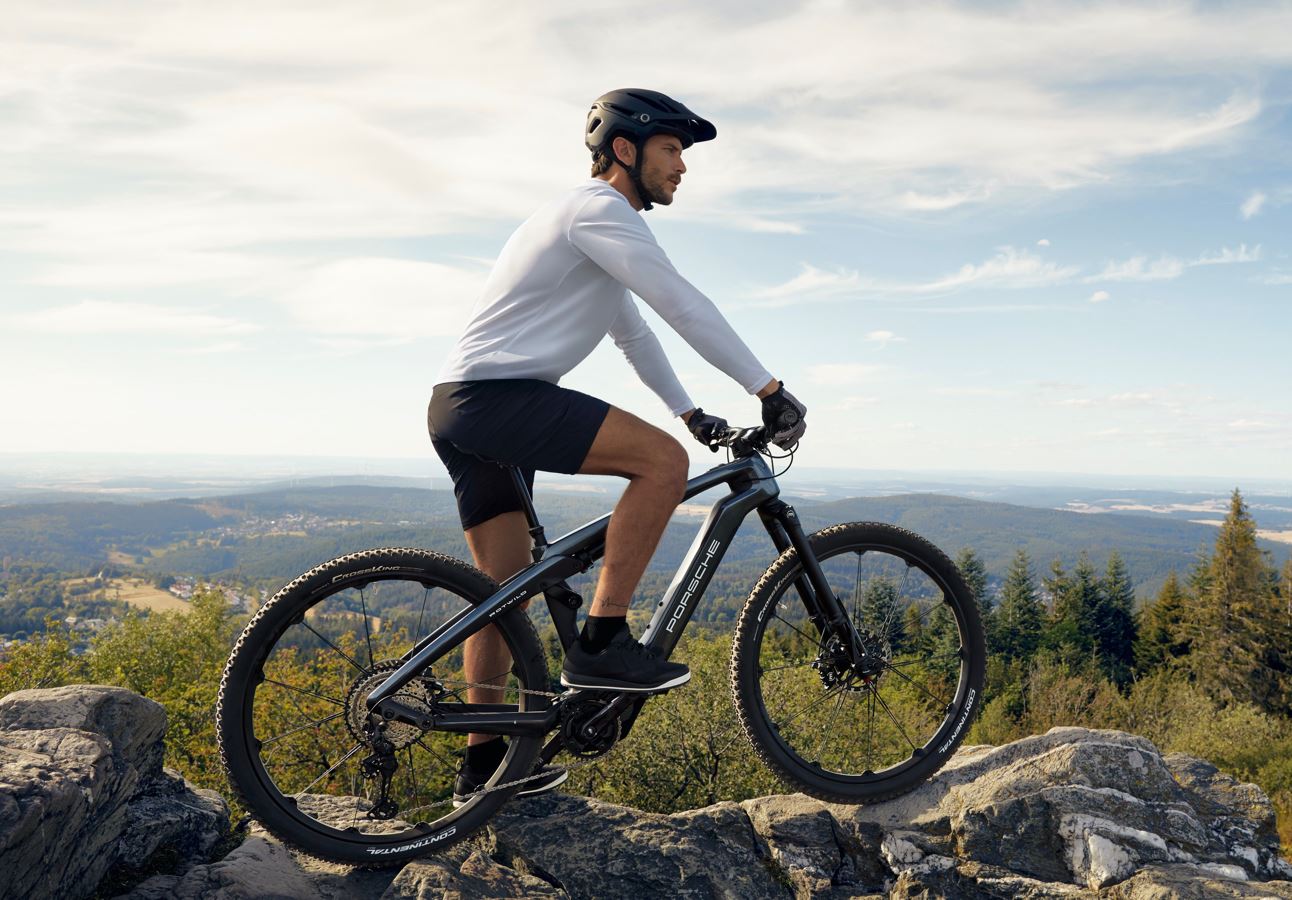 Could the motor industry therefore view cycles as an insurance policy to electric vehicle barriers; namely continued congestion and infrastructure required for mass adoption?
Could the motor industry therefore view cycles as an insurance policy to electric vehicle barriers; namely continued congestion and infrastructure required for mass adoption?
“They are different tools entirely. An electric car has the same parking problems, traffic congestion problems and cost problems as an ICE car. Two wheelers are shorter range, more versatile, much less expensive, and much more suited to big city travel,” says Benjamin.
“The thing is, car companies know how to make good products. But they have a culture, in my experience, that regards bicycles and electric bikes as unimportant. The big bosses and strategy teams may understand that micromobility is the future, but the majority of the car company culture is focused on big expensive shiny cars. Thus, they have disappointed, consistently, on bikes and so far electric bikes.”
Does a down-the-nose mentality discount auto firms from having success? With the available financing dwarfing bike industry cash flows, it’s tempting to argue that even a half-hearted approach could be impactful. Asked about a rising trend of car firms buying into the bike business, or hiring cycling people, Ed is surprised there has not been more momentum already.
“I am surprised it has not happened. But we could look at PON, a major auto world player, and see that this is exactly what they have been doing,” he says.
Notably Porsche Ventures now has full ownership of respected electric bike drive maker Fazua. (At the time of writing this article it had not yet taken its buyout option, something that perhaps illustrates how quickly this momentum is now moving.)
Add to that full ownership of Croatian eBike label Greyp and the subject has gone mainstream. Having been invited to participate in this feature, Porsche declined to go into greater detail than what exists in the public domain, saying only “we decided to do no further communication on this topic right now.”
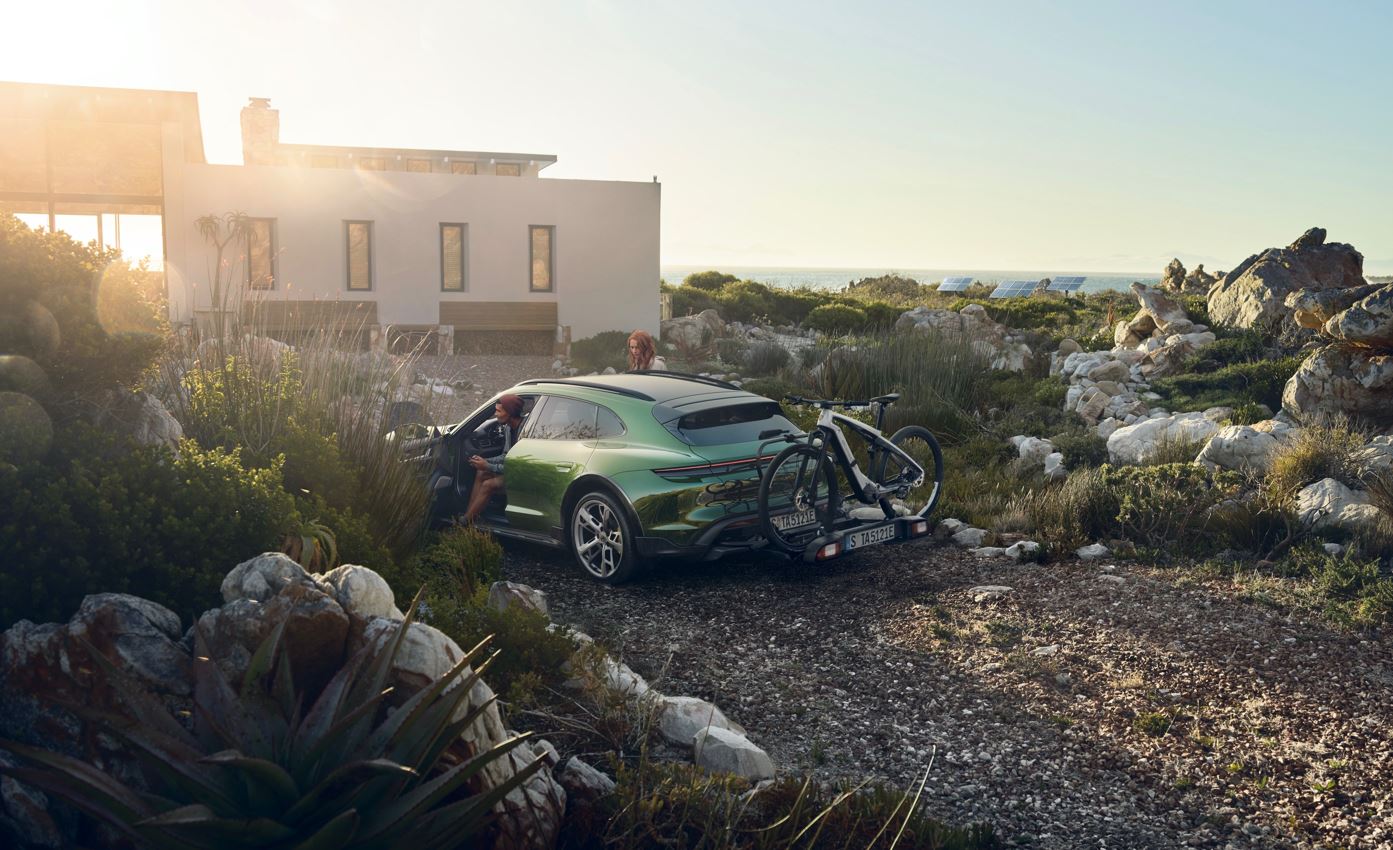 Just some of the investments from the four wheeled world into the two:
Just some of the investments from the four wheeled world into the two:
- Harley Davidson has launched its Serial1 electric bike brand
- nPlus Bikes is the Mercedes Benz electric bike brand (according to the site these will be sold and serviced via Mercedes dealers, though the UK’s first instance sits within Selfridges)
- BMW has challenged electric bike regulations with the unveiling of its iVision AMBY electric bike / speed pedelec platform
- KwikFit in the Netherlands has launched eBike and EV service centres
- US EV maker Rivian has registered electric bike trademarks
- D’Ieteren Automotive, the Belgium based car importer, announced an entry into the bicycle retail sector, with the business trading as Lucien
As for the first on the list, we were able to catch Aaron Frank, Brand Director with Serial1 (Harley Davidson), to learn more about the market approach. He told CI.N that the approach is varied by territory as it currently stands.
“At the current time, Serial 1 eBicycles are exclusively available in the UK at participating Harley-Davidson dealerships (this is also the case across Europe, in fact). In the USA they are available via multiple channels, including participating Harley Davidson dealerships, independent bicycle dealers, direct-to-consumer eCommerce, and more.”
With Harley’s widely established network, the infrastructure is already long in place to get Serial 1 firing quickly, but of course the indie store has been given a look in within the USA where the brand is arguably best-known and indeed designed and engineered (though Serial1’s product is manufactured in Taiwan). Cycles of any kind do require specialist knowledge and in particular, servicing knowledge. So, what’s the plan when routine maintenance is due, we ask.
“If your Serial 1 eBicycle requires service, that service should be carried out by a Serial 1 eBicycle dealer or by the dedicated Serial 1 customer service team. A complete dealer-readiness program helps prepare all of our dealers—including our Harley-Davidson motorcycle dealers—to service the Serial 1 product, including online training opportunities supplemented by a detailed dealer playbook,” says Frank.
Can the auto work really service bikes (and does it want to?)
During March, CI.N caught time with a mobile mechanic in the USA that hinted the ducks may not all be in a row just yet with the car businesses’ divergence down new mobility avenues.
Our source told us: “I am a mechanic for Velotooler, a broker for mobile mechanics and this repair popped up and my interest was piqued. It was for a Mercedes-Benz branded e-Bike. These were interested to me because it seemed that at least they put some company engineering effort into the bikes instead of just slapping on a badge. My interest really picked up when I looked up the service address. It was the address for the local Mercedes Benz/Sprinter dealer.”
That, then, suggests the bike industry’s skilled workers may soon face an increase in calls for bikes sold outside our core customer base.
“I called the phone number on the service request, sure enough, it rang through to the dealer. The person I spoke to told me that, while they sold the Mercedes bikes at their dealership, they did not consider themselves as a dealer. The bike in question was one that they sold and the buyer came back to them when the motor stopped working. I think it could be safely assumed that the buyer considers the MB dealership a dealer for the bikes and, as such, they would be the logical place to get the bike serviced.”
Our contact, who was set to be let in through the side door to handle the repair, at first signed off our chat by pondering what repair cost will then be passed on to the consumer when the bike is handed back. Later they returned to say that the brand was now considering replacing the whole bike, rather than scheduling the repair.
Visitors to the IAA Mobility event in Munich last year will have quickly come to the realisation that the automotive business operates on a different level of professionalism; a very well-funded and extremely well-trained level, to be better express the difference. This is of course no fault of the bike industry, but one could reasonably expect any teething problems in any part of an automotive owned business to be ironed out fast. Where less resource or financing exists things can be tougher to get network. Once more, we reached out to Ducati for insight, but received no reply on the brand’s grander plans for cycles.
To make some quick contrasts between tier one automotive and cycling brands. Market caps in Auto: VW Group, $108.3 Bn; Ford, $100 Bn and Daimler Group (Mercedes parent, among others) €74 billion. The largest in cycling, Shimano has a $21.31 billion market cap; Giant a $3.23 Bn and the Accell Group at the last count before its imminent KKR-led privatisation was a €1.54 billion market cap. In short, the top ten in cycling combined would not equal the clout of any of the aforementioned car labels alone.
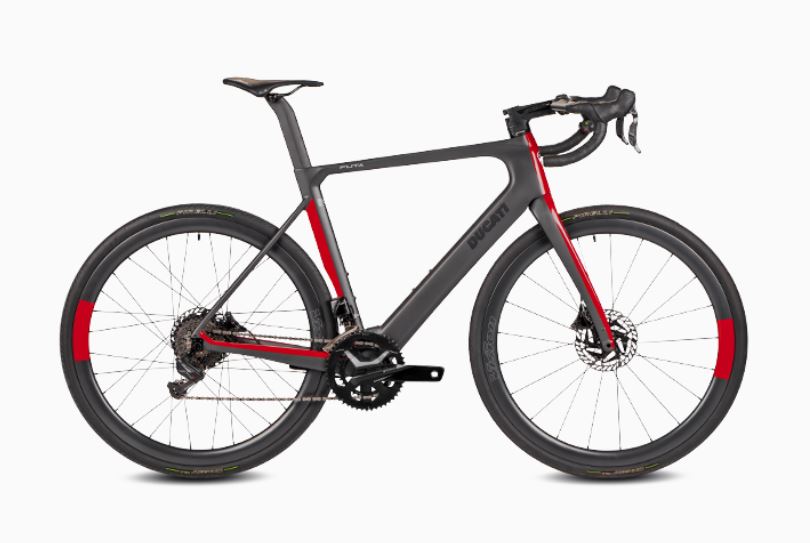 Another recent name to scoop column inches is Ducati, which in partnership with e-Bike label THOK has released a unique series that will unfortunately go wide of anyone able to access the Thok brand via distributor Windwave. These bikes will instead be the reserve of the Ducati sales network only. Once more, we reached out to Ducati for insight, but received no reply on the brand’s grander plans for cycles. The theme when speaking directly to the automotive world on the subject of smaller eMobility is one of keeping the cards close to the chest.
Another recent name to scoop column inches is Ducati, which in partnership with e-Bike label THOK has released a unique series that will unfortunately go wide of anyone able to access the Thok brand via distributor Windwave. These bikes will instead be the reserve of the Ducati sales network only. Once more, we reached out to Ducati for insight, but received no reply on the brand’s grander plans for cycles. The theme when speaking directly to the automotive world on the subject of smaller eMobility is one of keeping the cards close to the chest.
Another of the motorcycle labels with eBikes, that’s Yamaha, is to make stocking of its electric bikes mandatory for its motorbike dealers.
OEM partner FSA, however, were able to share a snippet on the brief. Matteo Palazzo at FSA told CI.N: “The bikes are primarily for an audience that cares about the brand as an icon of design and performance on two wheels, it’s difficult to compare it to other brands of the bike world.”
While limited to being able to speak for Ducati, as an OEM FSA were more candid that this partnership is far from the only interest in its goods from non cycle industry sources. “We are already working with other brands, both motorcar and motorbike. FSA has many product categories and is a brand to which many manufacturers look with interest for their projects. We have already worked with Harley and MV for other components and the goal is to become increasingly competitive even in the eBike motor segment. We are only at the beginning, there is more and more interest in our sector.”
On the skillsets required to keep such bikes rolling, Palazzo adds: “The technicians of the bikes will remain in the industry, the skills and experiences are different and surely customers will remain tied to the shops and specialised workshops.”
